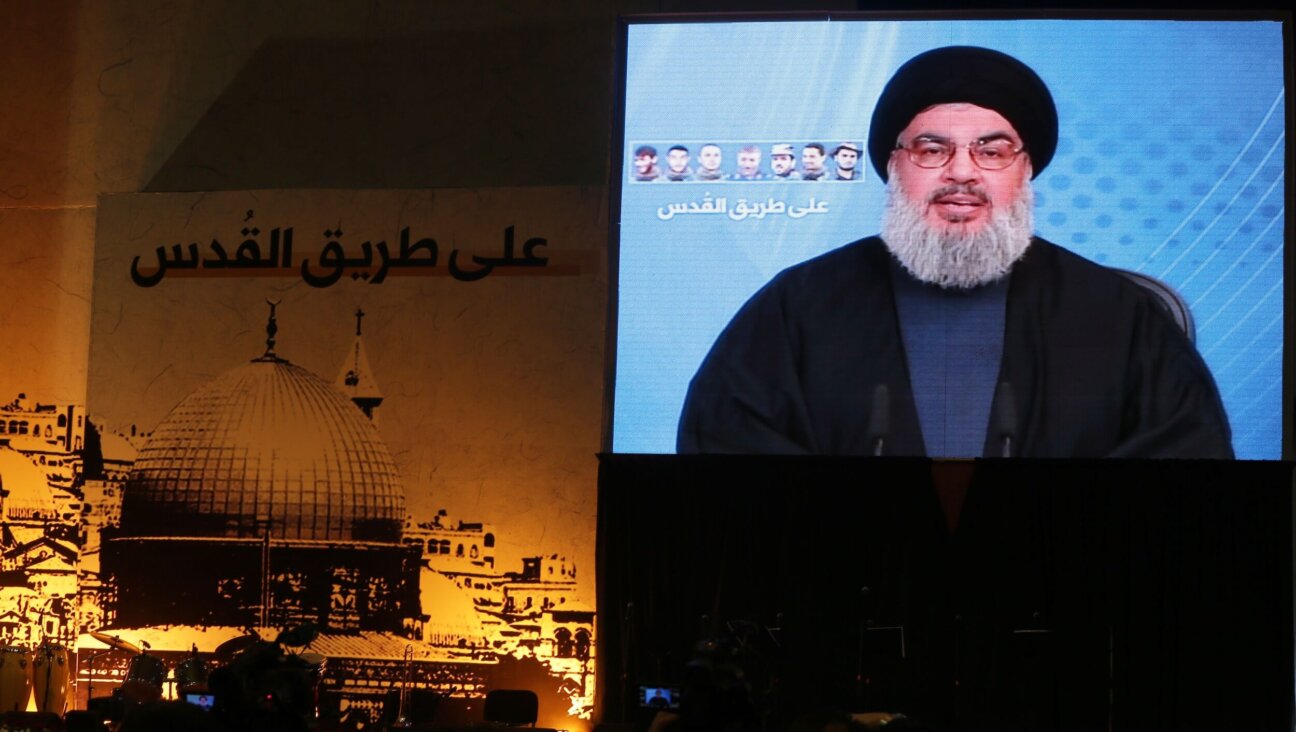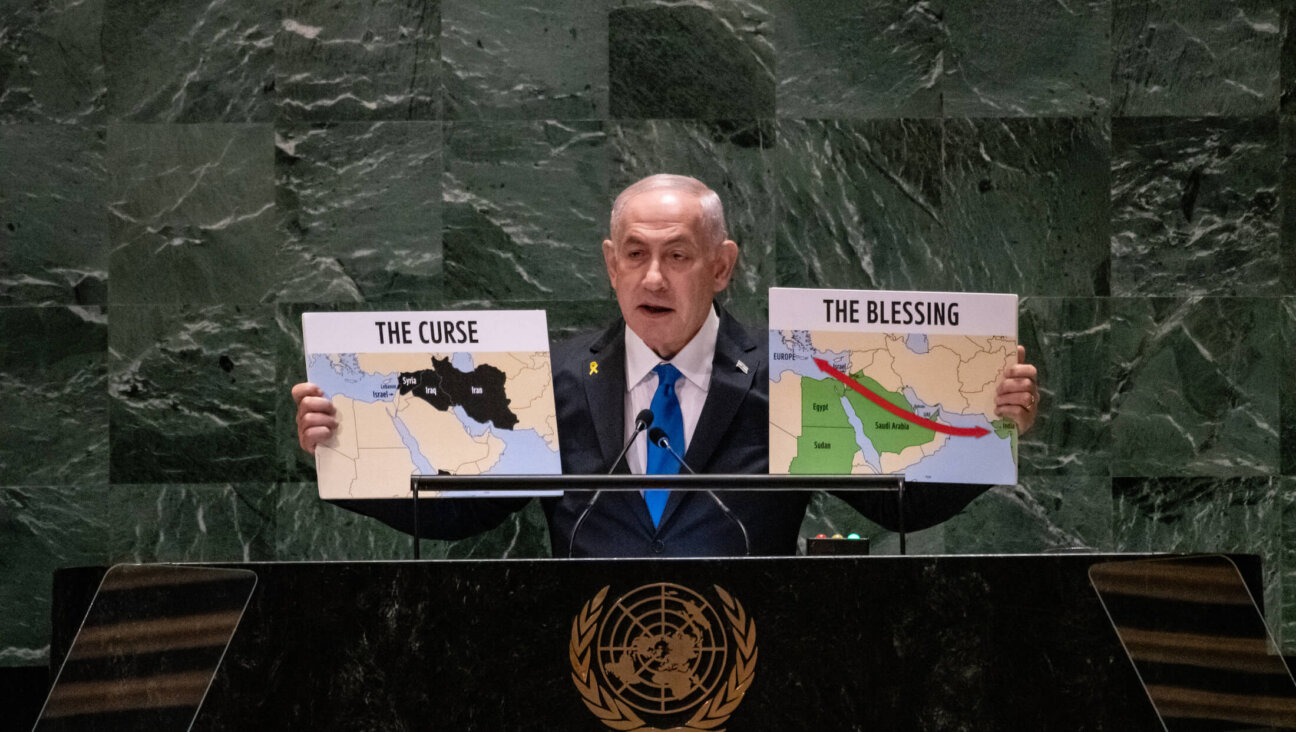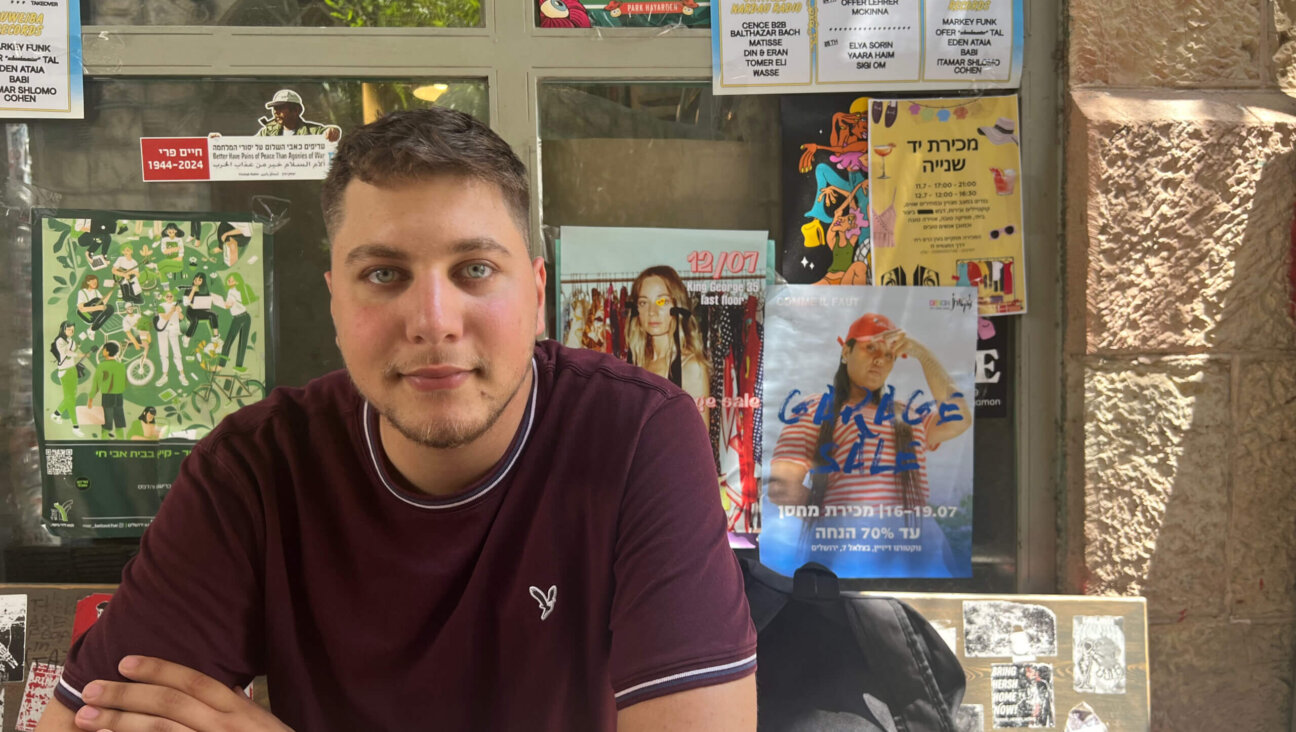I worked for Jimmy Carter at the White House. He should be remembered as a champion of the Jewish people
Peace in the Middle East and memorializing the Holocaust were two of Carter’s top priorities as president
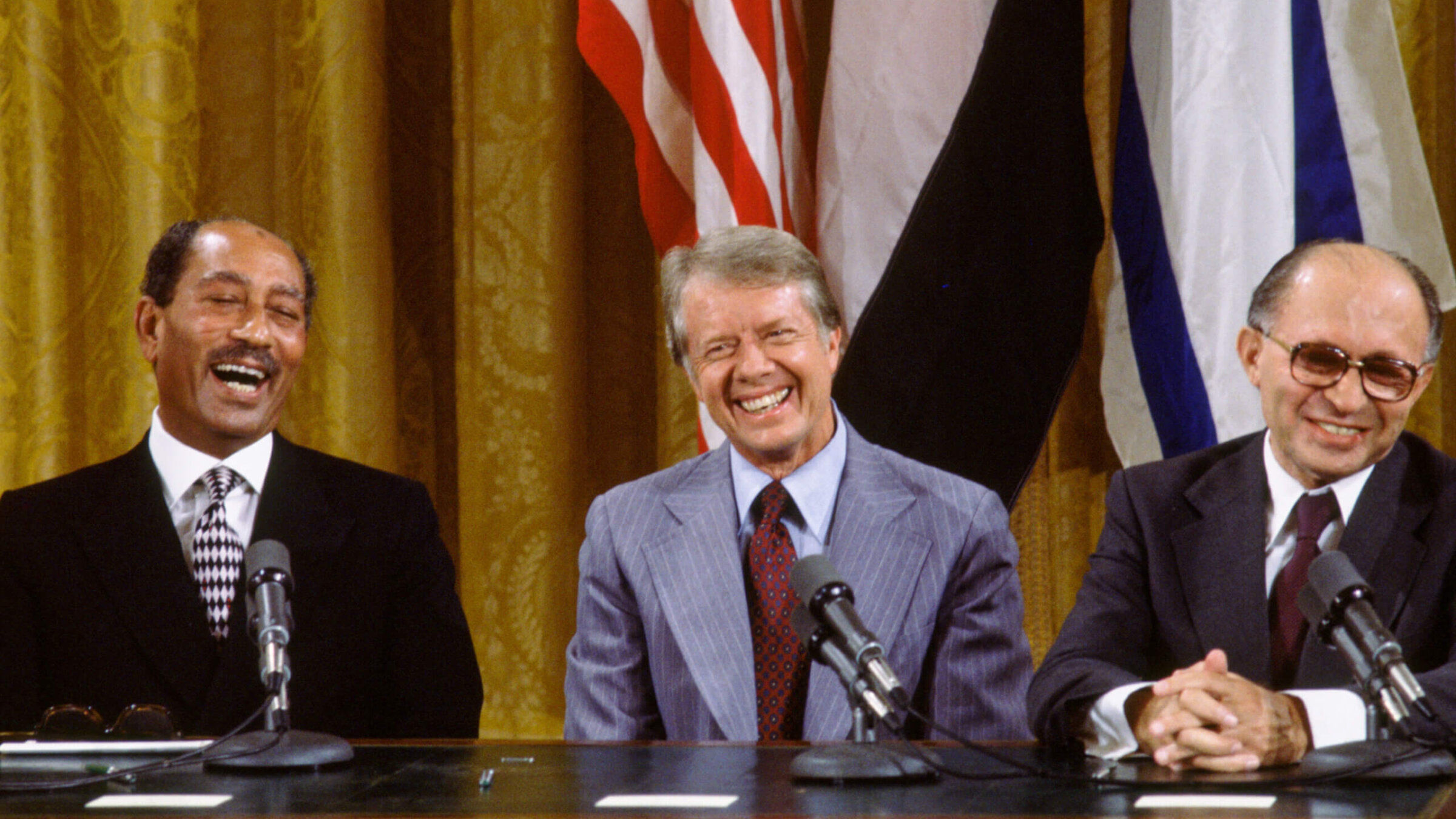
(L to R) Egyptian President Anwar Sadat, US President Jimmy Carter, and Israeli Premier Menachem Begin laugh together during the signing the Camp David Accords in the East Room of the White House, Sept. 18, 1978, in Washington, DC. The agreement came after twelve days of secret negotiations at Camp David. Photo by David Hume Kennerly/Getty Images
Jimmy Carter, the nation’s longest-living former president, died at 100 on Dec. 29. We are resharing this article, first published in February 2023.
No American President has done more to advance the security of the state of Israel, champion the rights of the Jewish people around the world, memorialize the victims of the Holocaust and honor its survivors, and embody the Jewish tradition of tikkun olam, repairing the world, than Jimmy Carter, a devout Southern Baptist from the tiny hamlet of Plains, Georgia.
And none were less rewarded politically by the American Jewish community for doing so.
I spent tens of thousands of hours working closely with Carter as policy director in both his 1970 Georgia gubernatorial campaign and 1976 presidential race, as his chief White House domestic policy adviser from 1977-1981, and as a friend and adviser in his post-presidency.

One of his early acts as president, fulfilling a campaign promise, was empowering me to mediate the negotiations between major Jewish organizations and the American business community to find a solution to the Arab boycott of American corporations who wished to do business with Israel. At the time, the Jewish community sought to make it illegal for American firms to participate in the Arab boycott of Israel; that is what Carter promised to do in the presidential campaign and what he supported as president.
The result of these negotiations was the Israel Anti-Arab Boycott Act of 1977, which prohibited American companies from cooperating with the Arab boycott by refusing to do business with Israel. This act measurably strengthened the Israeli economy by leading to more American trade and investment in Israel, and to decreased enforcement of the Arab boycott over time. In his signing statement, Carter called this a “moral issue from which we should not shrink.”
Carter was also the father of the U.S. Holocaust Memorial Museum. He created the Presidential Commission on the Holocaust chaired by Elie Wiesel (at my recommendation), accepting their recommendation for a museum, and obtaining unanimous congressional support.
Remembering the lessons of the Holocaust, when American doors were largely shut to fleeing Jewish refugees, Carter created a special visa category to permit tens of thousands of Iranian Jews fleeing the radical Iranian revolution to enter safety in the U.S. And he lit the first Hanukkah menorah in Lafayette Park on Dec. 17, 1979, with Chabad Rabbi Abraham Shemtov, my late wife Fran and my sons Jay and Brian, an experience which began a tradition of worldwide public lighting of Hanukkah menorahs sponsored by Chabad. I participated in lighting one this past Hanukkah on the beach at the Turks and Cacos.
Carter also applied his human rights policy to champion the emigration of Jews from the Soviet Union, leading to doubling of their number up to 50,000 annually, before the Soviet invasion of Afghanistan.
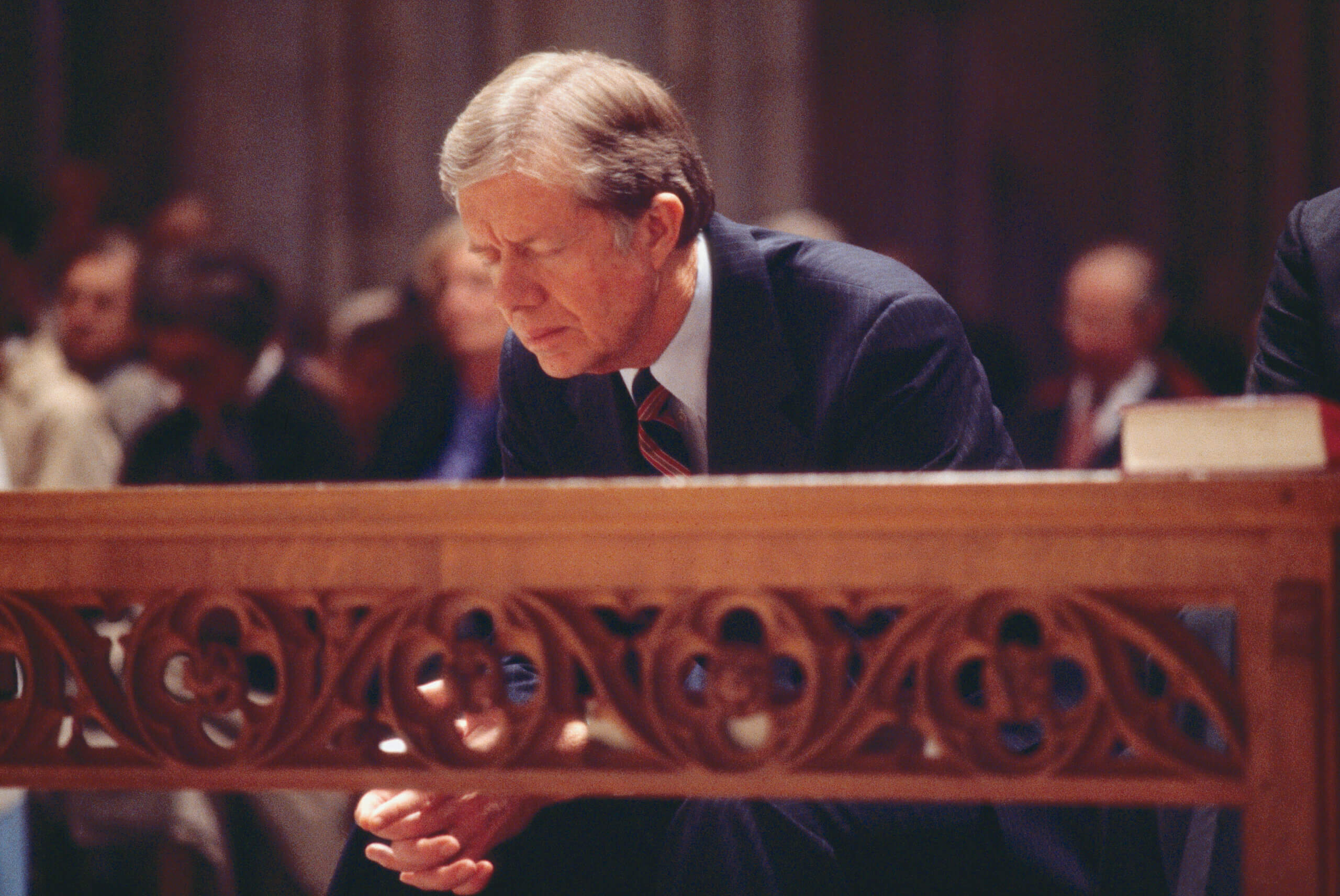
Despite his reputation by some in the American Jewish community to the contrary, Carter was also a strong supporter of Israel, and made Middle East peace his top foreign policy priority. His support for the Jewish state flowed directly from his Baptist roots. As he told me, ”I had a strong religious motivation to try to bring peace to what I call the Holy Land,” which he had first visited as Georgia governor in 1973. His first foreign visitor as president was Israeli Prime Minister Yitzhak Rabin.
There were also, of course, pressing geopolitical imperatives calling Carter to act. Egyptian President Anwar Sadat had recently broken with the Soviet Union and cast his lot with the United States. Bringing peace to the region by brokering the return of the Egyptian Sinai to Egypt in return for peace with Israel would strengthen the U.S. during the Cold War by enhancing American influence. Moreover, the partial disengagements between Egypt and Israel, and Syria and Israel, negotiated by Secretary of State Henry Kissinger in 1974 and 1975, had run their course.
Carter overshot the mark at the outset. He tried to revive the Geneva Conference cosponsored with the Soviet Union, which Kissinger had unsuccessfully launched, with all the Arab states to reach a comprehensive peace plan with all of Israel’s Arab enemies.
Israel was outraged that they would be outnumbered. At a tense, all-night negotiation with Israeli Foreign Minister Moshe Dayan at the U.N. Plaza Hotel, Carter was forced to back off. Sadat was also opposed, fearing his Arab neighbors would block his goal of the return of the Egyptian Sinai. This abortive conference was a key reason Sadat made his historic Nov. 19, 1977 trip to Israel, pledging, “No more wars.” Carter initially had qualms about Sadat’s initiative, believing it would undermine a comprehensive peace and lead only to a bilateral agreement. But he quickly embraced it. I became the official back channel to the Israeli Ambassador to the US.
Months of negotiations between Egypt and Israel failed to produce a breakthrough. Over the objection of his advisers, who believed it would fail, President Carter invited Begin and Sadat to the presidential retreat at Camp David, away from the press.
This time, Carter did everything possible to create a positive atmosphere. Carter had a kosher Shabbat dinner with the Israeli delegation. He took the two leaders in his presidential limousine to the Gettysburg battlefield to remind them of the futility of more wars. Begin was so moved he recited, verbatim, Lincoln’s Gettysburg Address. But the relationship between Begin and Sadat was so poisonous at their initial meeting on the first day that they never negotiated together again. While Sadat entrusted Carter with negotiating the best deal he could for Egypt, Begin, Israel’s first Likud prime minister, who believed that Israel was entitled to all the land from the Mediterranean Sea to the Jordan River, was a tough negotiator.
For 13 days and nights, in what was the greatest act of presidential diplomacy in American history, Carter drafted 23 peace agreements. He went around Begin to negotiate with Dayan, Defense Minister Ezer Weizman, and most importantly, legal adviser and future Israeli Supreme Court Justice Aharon Barak, and Sadat’s senior adviser, Osama El-Baz.
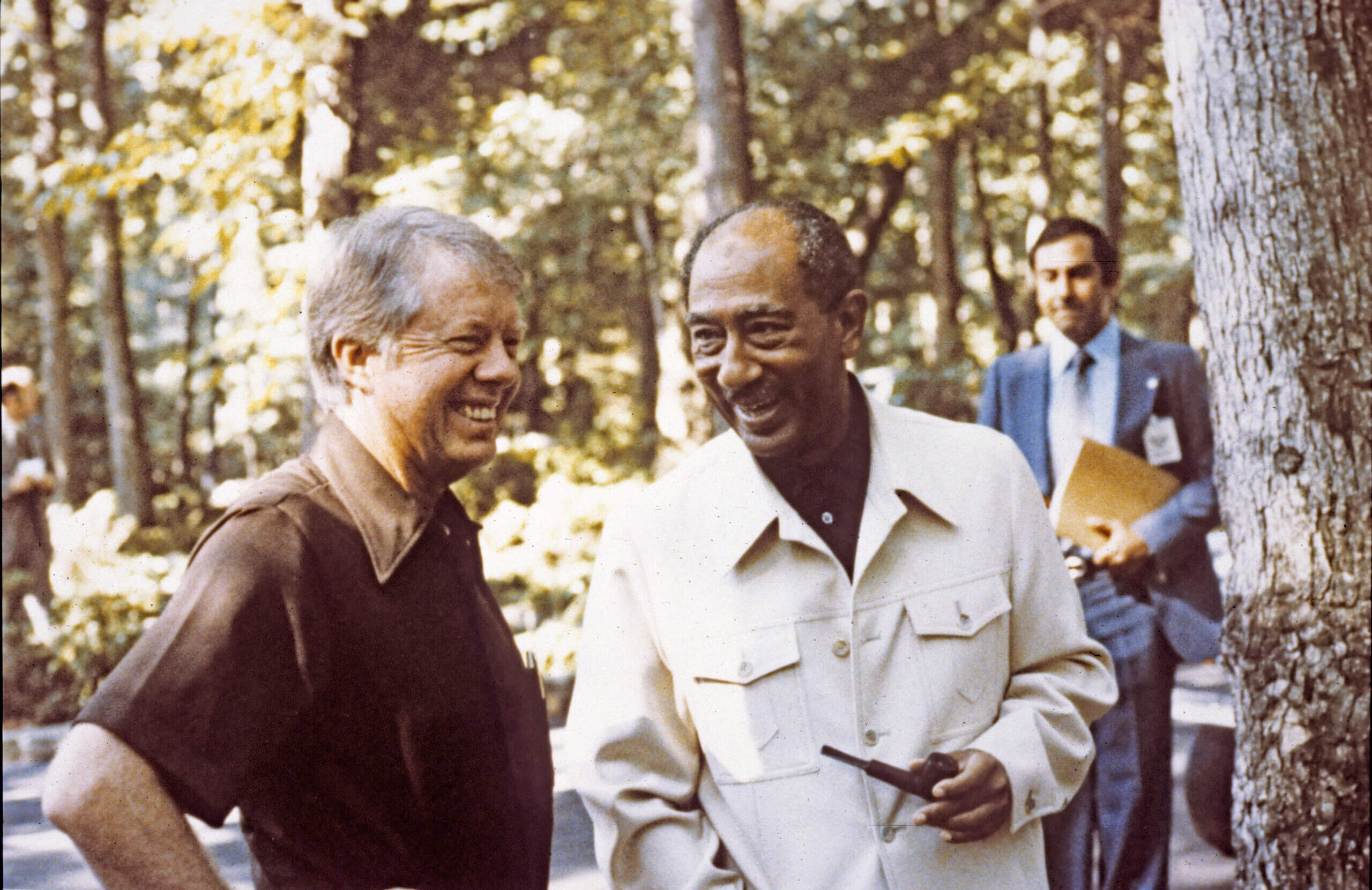
But on the last Sunday, they were still stuck over the status of Jerusalem. Begin told Carter his bags were packed — he could compromise no more. Carter, desperate that Sadat not go home empty-handed after his courageous trip to Jerusalem, autographed personalized copies of a photograph of the three leaders to each of Begin’s grandchildren and walked them over to Begin in his cabin. He saw Begin’s eyes tear and lips quiver; he put down his bags and completed the Camp David Accords.
But most have forgotten that the Accords provided only a framework for peace, not a final agreement. After six months of fruitless negotiations, Egypt and Israel failed to convert Camp David into a legally binding treaty. Again, over the objection of his advisers, Carter traveled to the region. And after three days of nonstop, all-night shuttle diplomacy, they produced the treaty, bringing Israel peace with its most powerful Arab enemy.
For Carter, there was one unfinished piece to the treaty: the Palestinians. As early as March 1977, he had called for a “Palestinian homeland” (not a state). He told me he saw Palestinians as akin to the Black population of the South, whose discrimination he had witnessed firsthand. At Camp David, Israel agreed to “full autonomy” for the Palestinians. Carter entrusted Sol Linowitz — a Special Representative for Middle East Peace Negotiations — to negotiate the details, but this was lost along with his reelection.
With all of these accomplishments, Carter got the lowest percentage of Jewish votes of any modern Democratic candidate: 45% in 1980, down from over 70% in 1976. At Camp David, Carter had promised Begin not to support any U.N. resolution dealing with the status of Jerusalem.
Arab-sponsored U.N. Resolution 465 referred to Jerusalem as “occupied territory” and condemned Israeli settlements. He ordered his U.N. ambassador, Donald McHenry, not to support any resolution condemning Israeli control of Jerusalem. Through a miscommunication, McHenry got some but not all references to Jerusalem removed and supported the resolution, which passed on March 1, 1980.
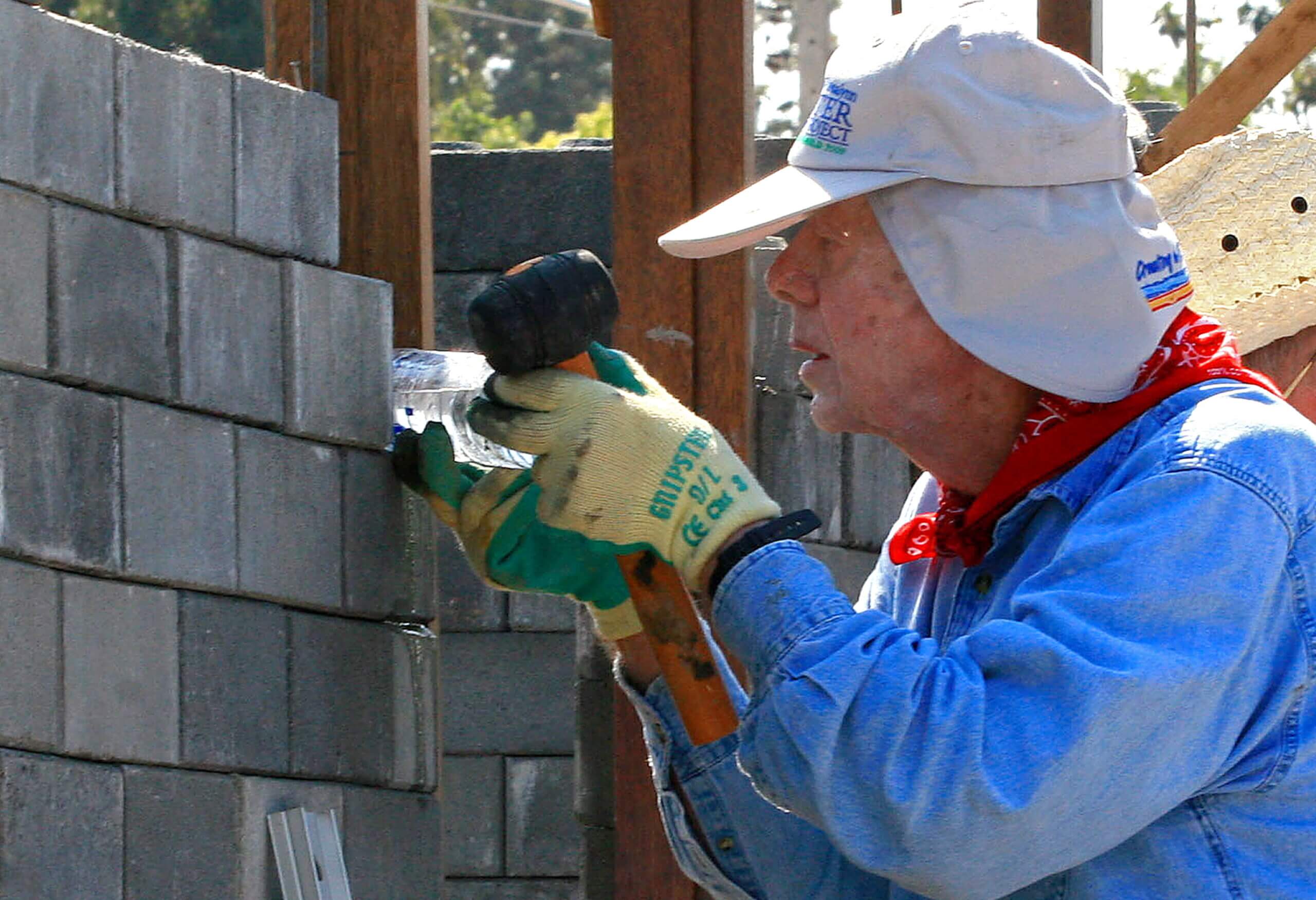
While Carter quickly disavowed the resolution, the damage was done. This caused the bottom to drop out of his Jewish support just before the New York primary against Sen. Ted Kennedy.
Long after his presidency, he got into hot water with the American Jewish community — and with me — over his controversial 2006 book Palestine: Peace Not Apartheid.
I urged him to change the title, and added that Israel’s settlement policy on the West Bank, however problematic, was not apartheid. Later, former Israeli prime ministers Ehud Barak and Ehud Olmert, issued the same “apartheid” warning if a two-state solution could not be found.
Carter’s post-presidency period was especially marked by good deeds in the Jewish tradition. He built scores of homes for Habitat for Humanity, and created the Carter Center, which has monitored over 100 elections around the world and ended the scourge of two African diseases, guinea worm and river blindness.
Jimmy Carter is a great and good man and a dear friend, who as president and in his post-presidency has done much to make America a better country, Israel a stronger nation and the world a better place.
To contact the author, email [email protected]








